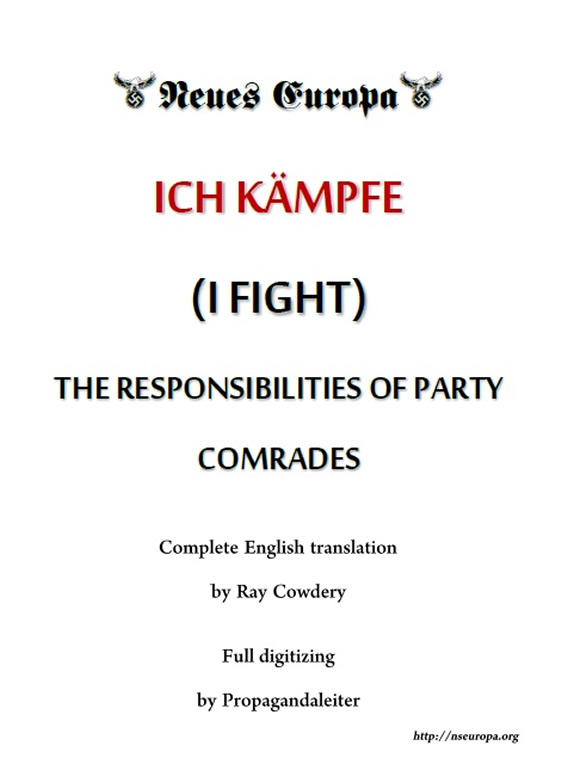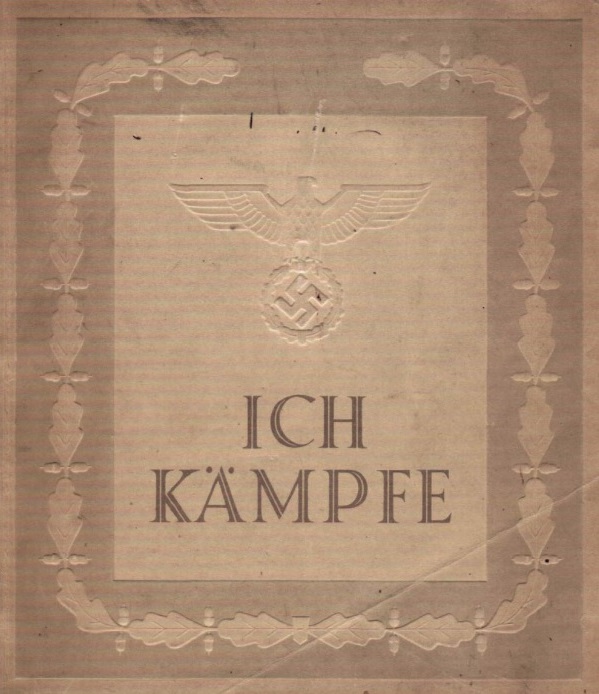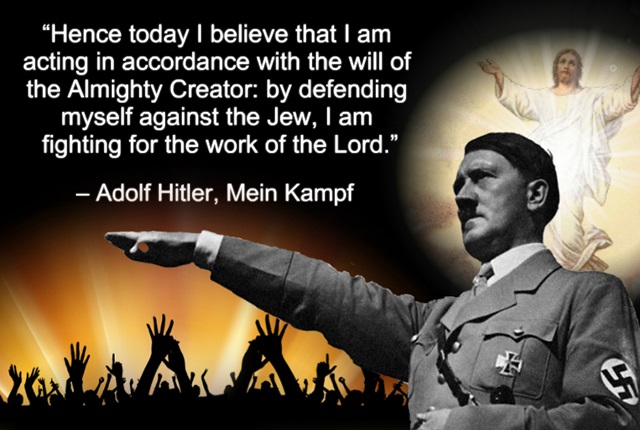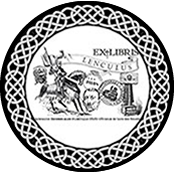
Ich kämpfe - I fight
The responsibilities of party comrades
Complete english translation
To the Führer
This is what makes him so great :
not only is he our Führer and the hero of many,
but he is himself straight, firm and modest;
our world is rooted in him,
his soul has touched the stars and yet he has remained a man,
just like you and me.
Baldur von Schirach
The Führer and his movement
Historical overview by Reichsleiter Philipp Bouhler
The „German Workers Party”, founded by Schriftleiter Karl Harrer on the 5th of January 1919, had almost no political existence. The six members of the party formed a union of well-meaning nationalist men who knew about the fateful activities of Marxism and thus had united with the purpose of giving the German working-classes back to the nation. Although the knowledge of these men was perfectly true, they were not capable of translating their plans into reality. They had no money but that was not the worst part. They lacked a general grand idea that could have guided them in their fight. Alone and helpless they faced a world that either intentionally ignored them or did not even know that they existed. They simply did not know how to attract the people’s attention and most likely they would never have exceeded the importance of an entirely meaningless debating club. In a word, they needed a Führer. They found him in their 7th member.
On the day - it must have been the 16th of September 1919 - that Adolf Hitler joined the party its unique career began. Hitler immediately realized that the party had to abandon its hidden existence and make itself publicly known. He believed that immense propaganda, adequate for the psyche of the masses was the only possible method of achieving this goal. First though, before he could introduce even the slightest innovation, Hitler had to overcome strong opposition from parliamentary oriented members to the „liquidation” of the party as it existed.
What is obvious in any army, especially in the German army, has almost completely disappeared in the political life of most nations: acknowledgement of the value of personality and its responsibility. In yesterday’s Germany it was the decisions of a majority that dictated the actions of the political leaders who could then hide behind those majority resolutions, free from any responsibility. Adolf Hitler however, structured his party according to the principles of authority towards those below and responsibility towards those above.
When the executive head of the party that had been known as the „NSDAP“ since the 9th of August 1920, resigned in July 1921, Adolf Hitler was elected chairman and was given almost dictatorial powers. Soon afterward it became clear that the speaker, who fascinated the masses with his words, had perfect organizational skills. He immediately and indiscriminately broke away from the (party’s) previous habits in which he saw the destruction of every organization.
Ich Kämpfe - Die pflichten des parteigenossen

Hitler Adolf - PDF
Führer - PDF
Third Reich - PDF




